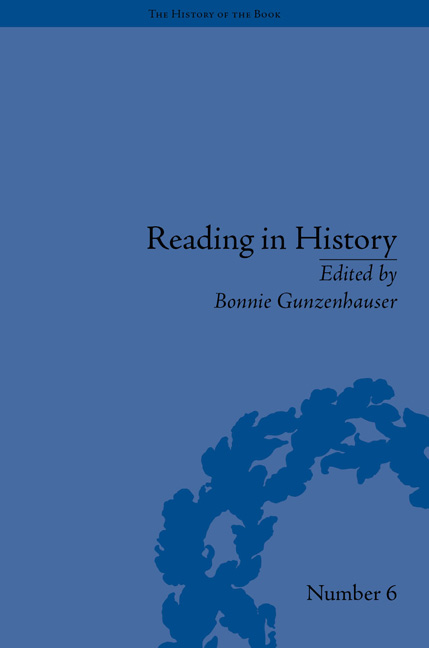Book contents
- Frontmatter
- CONTENTS
- Acknowledgements
- List of Contributors
- Introduction
- Section I Artefactual Methodologies
- 1 On the Use of Anecdotal Evidence in Reception Study and the History of Reading
- 2 Examining the Evidence of Reading: Three Examples from the Reading Experience Database, 1450–1945
- 3 Historical Dictionaries and the History of Reading
- Section II Paratextual Methodologies
- Section III Institutional Methodologies
- Notes
- Works Cited
- Index
3 - Historical Dictionaries and the History of Reading
from Section I - Artefactual Methodologies
- Frontmatter
- CONTENTS
- Acknowledgements
- List of Contributors
- Introduction
- Section I Artefactual Methodologies
- 1 On the Use of Anecdotal Evidence in Reception Study and the History of Reading
- 2 Examining the Evidence of Reading: Three Examples from the Reading Experience Database, 1450–1945
- 3 Historical Dictionaries and the History of Reading
- Section II Paratextual Methodologies
- Section III Institutional Methodologies
- Notes
- Works Cited
- Index
Summary
For many today, dictionaries are merely useful books: heavy college or unabridged dictionaries are reliable doorstops; electronic dictionaries invite users to cut to the chase. Do you have a question about a word's spelling, part of speech, register, meaning or etymology? Well, we say, ‘Look it up’. The idiom reflects important distinctions: look up does not mean the same as read, users and readers confront texts in different ways, always keeping in mind that each of us is user and reader, perhaps simultaneously, perhaps depending on the textual situation. But are dictionaries, then, readable texts that figure significantly in the history of reading? I ask the question in this way because glossaries and dictionaries have been important to careful reading for well over a millennium. As aids to reading, however, they need not themselves be readable, least of all for pleasure in and of themselves.
‘The Dictionary’ is a term of convenience for a complex, variegated genre. There are, in fact, many types of dictionary, and many of them, as well as being useful works of language reference, are readable, though they invite different reading methods and reading attitudes. While most dictionaries are constructed partly from reading and are also explicitly aids to reading, some types of dictionary are more deeply implicated in the history of reading than others. Historical dictionaries, of which the New English Dictionary, later retitled the Oxford English Dictionary (henceforth, in whatever edition, OED), is perhaps the best known example among speakers of English (though there are, in fact, hundreds of historical dictionaries), are more significant in the history of reading than is readily apparent: they constitute a particularly readable type of dictionary, so add to the variety of reading experience; they depend on material read especially for the purpose of historical lexicography, so cultivate specific ways of reading both in preparation and reception of the dictionary text.
- Type
- Chapter
- Information
- Reading in HistoryNew Methodologies from the Anglo-American Tradition, pp. 47 - 62Publisher: Pickering & ChattoFirst published in: 2014

